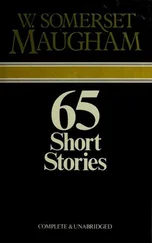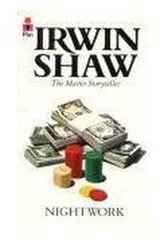Irwin Shaw - Short Stories - Five Decades
Здесь есть возможность читать онлайн «Irwin Shaw - Short Stories - Five Decades» весь текст электронной книги совершенно бесплатно (целиком полную версию без сокращений). В некоторых случаях можно слушать аудио, скачать через торрент в формате fb2 и присутствует краткое содержание. Год выпуска: 2013, Издательство: Open Road Media, Жанр: Современная проза, на английском языке. Описание произведения, (предисловие) а так же отзывы посетителей доступны на портале библиотеки ЛибКат.
- Название:Short Stories: Five Decades
- Автор:
- Издательство:Open Road Media
- Жанр:
- Год:2013
- ISBN:нет данных
- Рейтинг книги:5 / 5. Голосов: 1
-
Избранное:Добавить в избранное
- Отзывы:
-
Ваша оценка:
- 100
- 1
- 2
- 3
- 4
- 5
Short Stories: Five Decades: краткое содержание, описание и аннотация
Предлагаем к чтению аннотацию, описание, краткое содержание или предисловие (зависит от того, что написал сам автор книги «Short Stories: Five Decades»). Если вы не нашли необходимую информацию о книге — напишите в комментариях, мы постараемся отыскать её.
Short Stories: Five Decades — читать онлайн бесплатно полную книгу (весь текст) целиком
Ниже представлен текст книги, разбитый по страницам. Система сохранения места последней прочитанной страницы, позволяет с удобством читать онлайн бесплатно книгу «Short Stories: Five Decades», без необходимости каждый раз заново искать на чём Вы остановились. Поставьте закладку, и сможете в любой момент перейти на страницу, на которой закончили чтение.
Интервал:
Закладка:
“I thought a long time before I bought this hat,” Lenore said, flushing because he’d noticed it.
“Har- riet! ” The governess next door screamed in the alley to the next-door neighbor’s little girl. “Harriet, get away from there this minute!”
Andrew turned over on his stomach on the couch and put a pillow over his head. “Have you got any ideas for Ronnie Cook and His Friends for tomorrow?” he asked Lenore.
“No. Have you?”
“No.” He pulled the pillow tight around his head.
“You’ll get them by tomorrow,” Lenore said. “You always do.”
“Yeah,” said Andrew.
“You need a vacation,” Lenore said.
“Get out of here.”
“Good-bye,” Lenore started out. “Get a good night’s sleep.”
“Anything you say.”
Andrew watched her with one eye as she went off the porch on which he worked and through the living room and dining room, toward the stairs. She had nice legs. You were always surprised when a girl with a face like that had nice legs. But she had hair on her legs. She was not a lucky girl. “Oh, no,” Andrew said as the door closed behind her, “you are not a lucky girl.”
He closed his eyes and tried to sleep. The sun came in through the open windows and the curtains blew softly over his head and the sun was warm and comforting on his closed eyes. Across the street, on the public athletic field, four boys were shagging flies. There would be the neat pleasant crack of the bat and a long time later the smack of the ball in the fielder’s glove. The tall trees outside, as old as Brooklyn, rustled a little from time to time as little spurts of wind swept across the baseball field.
“Harr iet !” the governess called. “Stop that or I will make you stand by yourself in the corner all afternoon! Harriet! I demand you to stop it!” The governess was French. She had the only unpleasant French accent Andrew had ever heard.
The little girl started to cry, “Mamma! Mamma! Mamma, she’s going to hit me!” The little girl hated the governess and the governess hated the little girl, and they continually reported each other to the little girl’s mother. “Mamma!”
“You are a little liar,” the governess screamed. “You will grow up, and you will be a liar all your life. There will be no hope for you.”
“Mamma!” wailed the little girl.
They went inside the house and it was quiet again.
“Charlie,” one of the boys on the baseball field yelled, “hit it to me, Charlie!”
The telephone rang, four times, and then Andrew heard his mother talking into it. She came onto the porch.
“It’s a man from the bank,” she said. “He wants to talk to you.”
“You should’ve told him I wasn’t home,” Andrew said.
“But you are home,” his mother said. “How was I to know that …?”
“You’re right.” Andrew swung his legs over and sat up. “You’re perfectly right.”
He went into the dining room, to the telephone, and talked to the man at the bank.
“You’re a hundred and eleven dollars overdrawn,” said the man at the bank.
Andrew squinted at his mother, sitting across the room, on a straight chair, with her arms folded in her lap, her head turned just a little, so as not to miss anything.
“I thought I had about four hundred dollars in the bank,” Andrew said into the phone.
“You are a hundred and eleven dollars overdrawn,” said the man at the bank.
Andrew sighed. “I’ll check it.” He put the phone down.
“What’s the matter?” his mother asked.
“I’m a hundred and eleven dollars overdrawn,” he said.
“That’s shameful,” his mother said. “You ought to be more methodical.”
“Yes.” Andrew started back to the porch.
“You’re awfully careless.” His mother followed him. “You really ought to keep track of your money.”
“Yes.” Andrew sat down on the couch.
“Give me a kiss,” his mother said.
“Why?”
“No particular reason.” She laughed.
“O.K.” He kissed her and she held him for a moment. He dropped down on the couch. She ran her finger under his eye.
“You’ve got rings under your eyes,” she said.
“That’s right.”
She kissed him again and went to the rear of the house. He closed his eyes. From the rear of the house came the sound of the vacuum cleaner. Andrew felt his muscles getting stiff in protest against the vacuum cleaner. He got up and went to her bedroom, where she was running the machine back and forth under the bed. She was down on one knee and was bent over, looking under the bed.
“Hey!” Andrew yelled. “Hey, Mom!”
She turned off the machine and looked up at him. “What’s the matter?”
“I’m trying to sleep,” he said.
“Well, why don’t you sleep?”
“The vacuum cleaner. It’s shaking the house.”
His mother stood up, her face setting into stern lines. “I’ve got to clean the house, don’t I?”
“Why do you have to clean the house while I’m trying to sleep?”
His mother bent down again. “I can’t use it while you’re working. I can’t use it while you’re reading. I can’t use it until ten o’clock in the morning because you’re sleeping.” She started the machine. “When am I supposed to clean the house?” she called over the noise of the cleaner. “Why don’t you sleep at night like everybody else?” And she put her head down low and vigorously ran the machine back and forth.
Andrew watched her for a moment. No arguments came to him. The sound of the cleaner so close to him made his nerves jump. He went out of the room, closing the door behind him.
The telephone was ringing and he picked it up and said, “Hello.”
“Ahndrew?” his agent’s voice asked. His agent was from Brooklyn, too, but he had a very broad A, with which he impressed actors and sponsors.
“Yes, this is Ahndrew.” Andrew always made this straight-faced joke with his agent, but the agent never seemed to catch on. “You didn’t have to call. The Dusty Blades scripts are all through. You’ll get them tomorrow.”
“I called about something else, Ahndrew,” his agent said, his voice very smooth and influential on the phone. “The complaints’re piling up on the Blades scripts. They’re as slow as gum. Nothing ever happens. Ahndrew, you’re not writing for the Atlantic Monthly .”
“I know I’m not writing for the Atlantic Monthly .”
“I think you’ve rather run out of material,” his agent said lightly, soothingly. “I think perhaps you ought to take a little vacation from the Blades scripts.”
“Go to hell, Herman,” Andrew said, knowing that Herman had found somebody to do the scripts more cheaply for him.
“That’s hardly the way to talk, Ahndrew,” Herman said, his voice still smooth, but hurt. “After all, I have to stand in the studio and listen to the complaints.”
“Sad, Herman,” Andrew said. “That’s a sad picture,” and hung up.
He rubbed the back of his neck reflectively, feeling again the little lump behind his ear.
He went into his own room and sat at his desk looking blankly at the notes for his play that lay, neatly piled, growing older, on one side. He took out his checkbook and his last month’s vouchers and arranged them in front of him.
“One hundred and eleven dollars,” he murmured, as he checked back and added and subtracted, his eyes smarting from the strain, his hands shaking a little because the vacuum cleaner was still going in his mother’s room. Out on the athletic field more boys had arrived and formed an infield and were throwing the ball around the bases and yelling at each other.
Dr. Chalmers, seventy-five dollars. That was for his mother and her stomach.
Читать дальшеИнтервал:
Закладка:
Похожие книги на «Short Stories: Five Decades»
Представляем Вашему вниманию похожие книги на «Short Stories: Five Decades» списком для выбора. Мы отобрали схожую по названию и смыслу литературу в надежде предоставить читателям больше вариантов отыскать новые, интересные, ещё непрочитанные произведения.
Обсуждение, отзывы о книге «Short Stories: Five Decades» и просто собственные мнения читателей. Оставьте ваши комментарии, напишите, что Вы думаете о произведении, его смысле или главных героях. Укажите что конкретно понравилось, а что нет, и почему Вы так считаете.











